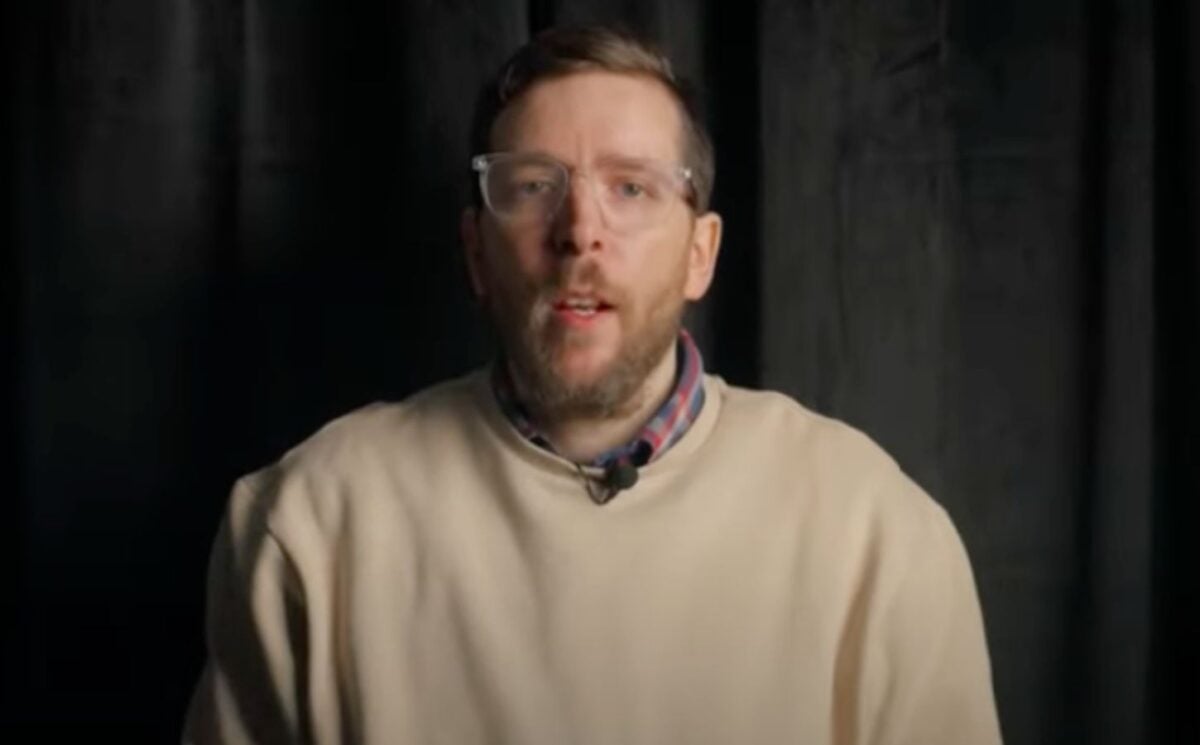If you’ve spent any time diving into the world of plant-based health and nutrition on YouTube, chances are you’ve come across Gojiman. Known for his science-based approach to nutrition and gut health, Gojiman (real name Simon Hammett) is a qualified nutritionist. He shares informative videos about gut health, plant-based diets, and common health myths. Despite his expertise today, Gojiman is the first to admit that his plant-based journey wasn’t without mistakes.
In a recent video, titled My 7 Biggest Nutrition Mistakes, Gojiman reflected on his journey. “I have made a lot of mistakes on the vegan diet,” he said. “And I want to share the seven biggest mistakes I have made so you can see what not to do.” Here are his top seven missteps and the lessons we can all take from them:
Please note: Gojiman’s video is intended as general advice, and it may not be for everyone. Always consult a health professional if you have personal questions about your health.
1. Blindly following advice without questioning
Gojiman admits he initially relied too much on intricate advice from plant-based doctors and health experts, and became overly reliant on advice about optimum ratios and portions of specific foods. Gojiman now prioritizes learning from the longest-lived people on the planet, such as those in the Blue Zones, who focus on a balanced lifestyle and a variety of whole foods. “These people aren’t obsessing over food ratios,” he emphasized. His advice: stay informed but avoid overcomplicating your approach to health.
2. Overestimating the role of nutrition
While nutrition is vital, Gojiman emphasizes that it’s just one piece of the puzzle for a long and healthy life. He explained that the longest-lived people also have purpose, manage stress well, and surround themselves with positive communities. He highlighted the importance of concepts like “ikigai” (a reason to wake up in the morning) and maintaining strong social connections. By balancing nutrition with stress management and other lifestyle factors, Gojiman saw significant improvements in his own health.
Read more: Eating A Higher Ratio Of Plant Protein Supports Heart Health, Finds Study
3. Chasing perfection in diet
Early in his journey, Gojiman aimed for dietary perfection. “If it wasn’t organic or a whole food, I wouldn’t eat it,” he said. This pursuit often created unnecessary stress and made his diet unsustainable. Now, he embraces the 80 percent rule: 80 percent whole foods, occasional treats, and stopping eating when 80 percent full. He emphasized that the fear of imperfection can lead to anxiety and detract from the joy of eating.
4. Overlooking iodine
When Gojiman went vegan, he admitted that iodine wasn’t really on his radar. This oversight affected his energy levels, metabolism, and gut health. Iodine is essential for thyroid function, which influences various bodily processes, including brain health, heart function, and digestion. To address this, Gojiman now incorporates iodine-rich foods like seaweed and iodized salt into his diet. “The recommended intake is fairly low at 150 micrograms per day… so you really don’t need much of it compared to other nutrients,” he said. He suggests using seaweed as a natural source and considering supplements only as a last resort.
5. Not drinking enough water
Hydration was a persistent challenge for Gojiman, even after transitioning to a vegan diet. Water plays a critical role in digestion, nutrient absorption, and overall bodily functions. “Dehydration can lead to fatigue, headaches, and impaired cognitive function,” he warned. To avoid these issues, Gojiman recommends drinking at least two liters of water daily, adjusting for physical activity and climate. He also advises paying attention to your body’s signals and ensuring consistent hydration throughout the day.
6. Believing everything he read or watched
Gojiman said that he didn’t develop his “BS radar” early on. This led to wasted time and money on misleading advice. “Always verify the credibility of sources,” he advised, emphasizing the importance of evidence-based information. He encourages viewers to rely on reputable studies and institutions rather than taking claims at face value. He said that “critical thinking and skepticism are essential” in navigating the overwhelming amount of information out there. By thoroughly researching and cross-referencing information, people can make informed decisions that truly benefit their health.
7. Waiting too long to go vegan
Gojiman’s only regret about veganism is not adopting it sooner. Losing close family members to chronic diseases motivated him to prioritize his health and make lasting changes. Subsequently, he became motivated by animal and environmental reasons.
Gojiman’s reflections remind us that health is a journey of learning and adapting. “Look after your body,” he said, “because it’s the only place you have to live.”
Read more: Experts Recommend US Dietary Guidelines Prioritize Plant-Based Proteins






